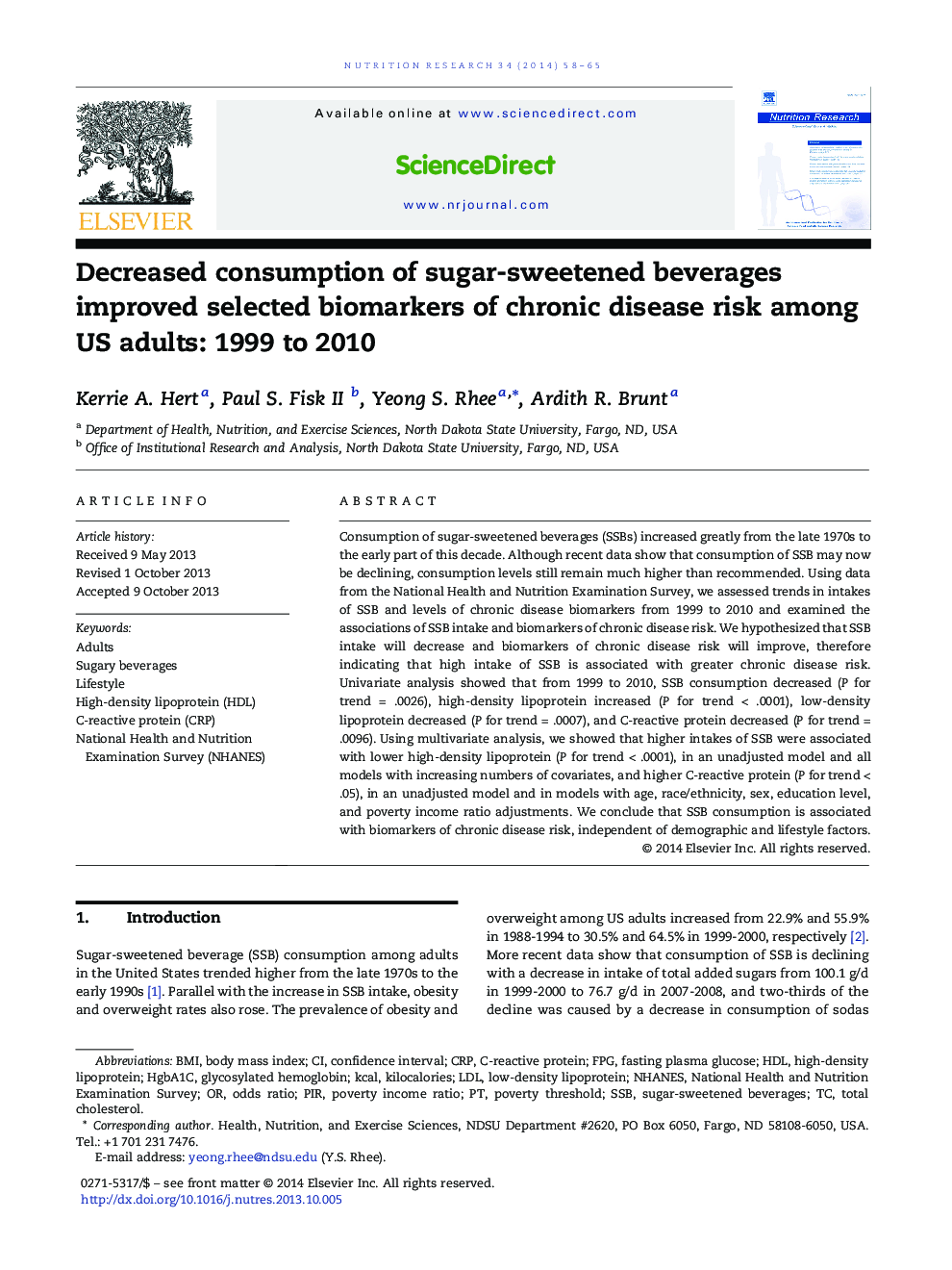| Article ID | Journal | Published Year | Pages | File Type |
|---|---|---|---|---|
| 2809194 | Nutrition Research | 2014 | 8 Pages |
Consumption of sugar-sweetened beverages (SSBs) increased greatly from the late 1970s to the early part of this decade. Although recent data show that consumption of SSB may now be declining, consumption levels still remain much higher than recommended. Using data from the National Health and Nutrition Examination Survey, we assessed trends in intakes of SSB and levels of chronic disease biomarkers from 1999 to 2010 and examined the associations of SSB intake and biomarkers of chronic disease risk. We hypothesized that SSB intake will decrease and biomarkers of chronic disease risk will improve, therefore indicating that high intake of SSB is associated with greater chronic disease risk. Univariate analysis showed that from 1999 to 2010, SSB consumption decreased (P for trend = .0026), high-density lipoprotein increased (P for trend < .0001), low-density lipoprotein decreased (P for trend = .0007), and C-reactive protein decreased (P for trend = .0096). Using multivariate analysis, we showed that higher intakes of SSB were associated with lower high-density lipoprotein (P for trend < .0001), in an unadjusted model and all models with increasing numbers of covariates, and higher C-reactive protein (P for trend < .05), in an unadjusted model and in models with age, race/ethnicity, sex, education level, and poverty income ratio adjustments. We conclude that SSB consumption is associated with biomarkers of chronic disease risk, independent of demographic and lifestyle factors.
